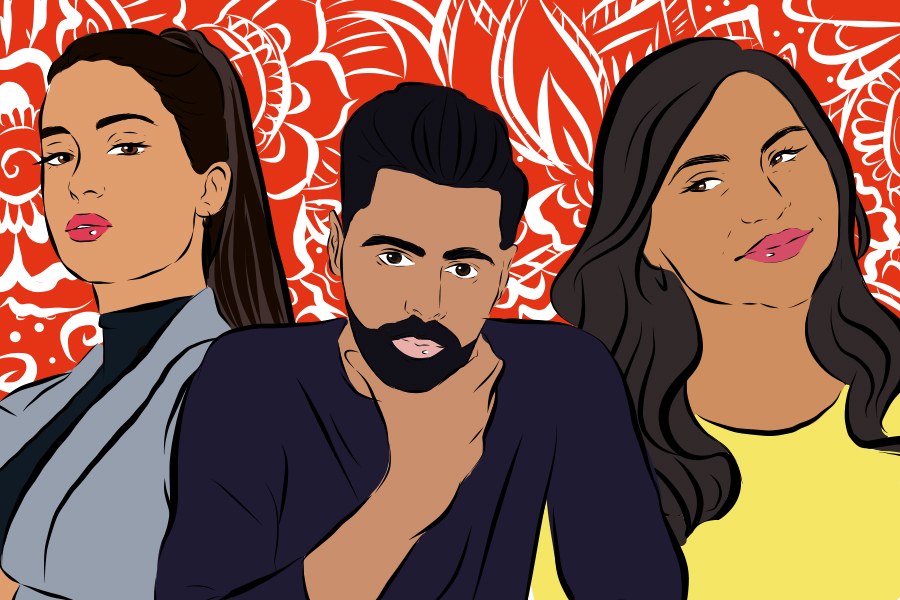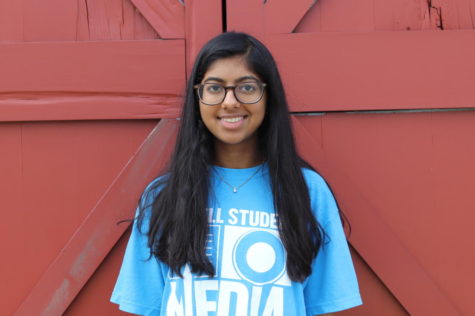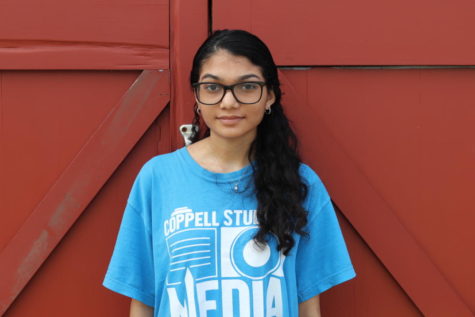Breaking barriers
Indian Americans challenge stereotypes in comedy, film
Recently, more Indian Americans have been represented in the media including Mindy Kailing’s upcoming comedy series on Netflix “Never Have I Ever”, Hasan Minhaj’s political comedy show “Patriot Act” and Lily Singh’s talk show, “A Little Late with Lilly Singh.” The Sidekick staff writer Anvitha Reddy identifies the need for more representation of Indian Americans in lead roles in TV and film.
February 10, 2020
From the nerd with the unattractive accent to the object of every joke, Indian Americans have consistently been marginalized in film and media. The lack of representation in protagonist roles causes a constant barrier between what South Asians experience growing up and what is portrayed to be “normal” in the media.
At the turn of the century, however, the rise of Indian protagonists and dynamic characters saw a large increase. “The Office”, co-written by Mindy Kaling, challenges these stereotypes with Kelly Kapoor, a fashion-loving, drama-obsessed character. Though not the most well-liked character, Kapoor highlighted the various personalities of an Indian, something commonly forgotten.
Kaling’s work didn’t stop there.
Last year, Kaling announced her new coming-of-age series, “Never Have I Ever”, which seeks to highlight the struggle of adolescence in a South Asian household. Emphasizing the importance of hiring a relatable cast, Kaling sought to select actors who could connect to the story she wanted to tell.
Coppell High School senior Teja Tummuru auditioned to play Devi in her upcoming coming-of-age film.
“I saw the opportunity to give a voice to Indian Americans in the media and I thought that it could be my voice,” Tummuru said.
This project, like several others, demonstrates the growing influence of Indians in the media. Previously, Indians shied away from the media. But with a combination of ambitious, stereotype- challenging minds and new representation, the growth of Indian influence in American media is exponential.
Canadian Indian Maitreyi Ramakrishnan will play the lead, and her goal is to represent the community in film and media.
“[Having Indian representation] gives a certain layer of authenticity,” Tummuru said. “Especially acting is easier when you have experiences to base your role off of.”
Between YouTube, films and comedy shows, Indian individuals are taking strides in challenging Western stereotypes while creating enjoyable content.
Lilly Singh, originally known for her YouTube channel iiSuperwomanii (now just Lilly Singh), became the first Indian and the first of the LGBTQ+ community to host a late night show. Her show, “A Little Late with Lilly Singh”, carries the legacy of late night comedy with a fresh perspective.
Indians taking lead roles challenges stereotypes of them being quiet and nerdy characters. Rather, the presence of comedy emphasizes similarities across cultures and provides critical representation in the media.
As Indian immigration to America increases, it is important to feel represented in film and media. With the increasing presence of Indian Americans, representation allows younger individuals to relate to experiences and create role models, something that Indian Americans haven’t always had the privilege of having.
Comedian Hasan Minhaj’s Netflix political comedy show, “Patriot Act”, a 2019 Emmy winner, tackles global political challenges with humor. He discusses some of his experiences being a second-generation immigrant while challenging a cultural standard in the Indian community.
The culmination of new shows has provided critical access to Indian Americans nationwide.
However, there are still more opportunities to integrate the Indian culture in the media, and this is just a start.
“There is a little bit more improvement [in the media],” Tummuru said. “There is definitely room for improvement though. We need more dynamic characters.”
Follow Anvitha Reddy (@anvithareddytx) and @CHSCampusNews on Twitter.













Samantha Freeman • Feb 10, 2020 at 9:34 pm
I love this story! Great job Anvitha!